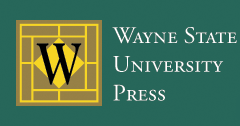Abstract
This article examines ABC’s televisual fairy-tale adaptation Once Upon a Time (2011–present) by investigating how the organization of episodic storylines within the show challenges chronometric accounts of time, temporality, and growth. It considers how the female characters’ emotional development in magical time facilitates a level of fluidity within representations of their growth and character development. Centrally, this article demonstrates how the intersection between form and content moves the tale away from a narrative of devil woman as crone to alternatively reinforce dominant Western ideas surrounding the importance of “ideal” development in youth.
Recommended Citation
Whitehurst, Katherine
(2018)
"Growing Up in Magical Time: Representations of Female Growth and Development in ABC’s Once Upon a Time,"
Narrative Culture: Vol. 5:
Iss.
1, Article 2.
Available at:
https://digitalcommons.wayne.edu/narrative/vol5/iss1/2
